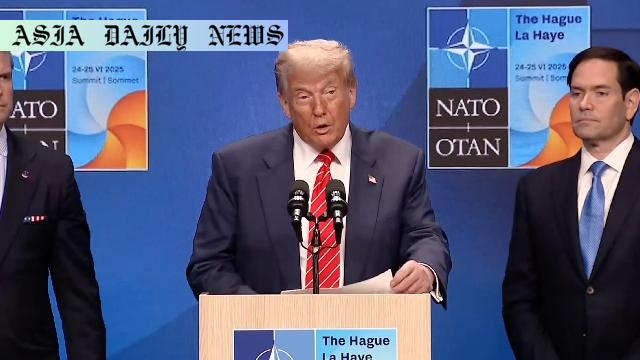Iran nuclear talks: US President Trump eyes next week’s nuclear negotiations after controversial strikes on Iran’s facilities.

US-Iran Nuclear Talks Amid Controversy
The announcement of potential nuclear talks between the United States and Iran next week has drawn significant attention globally. President Donald Trump made this statement following last Sunday’s controversial US military strikes on three key Iranian nuclear sites. According to the President, the aim of the upcoming talks is straightforward: ‘no nuclear weapons.’ However, the backdrop of recent actions adds complexity to the discussions ahead. While Trump repeatedly emphasizes that these strikes have permanently set back Iran’s nuclear ambitions, skepticism remains among defense analysts and foreign policy experts.
The Fallout of US Strikes on Iran’s Nuclear Sites
On Sunday, the United States targeted three locations in Iran deemed critical to its nuclear program. Trump described these strikes as an effort to ensure global peace and prevent Iran from acquiring nuclear capabilities. He even referred to historical precedents, making a contentious comparison to the Hiroshima and Nagasaki bombings, suggesting these moves could prevent wider conflict. Despite Trump’s strong rhetoric, leaked intelligence indicates that the operation may have only temporarily disrupted Iran’s nuclear machinery for a few months, a claim he vehemently denies.
What Lies Ahead: Diplomatic and Strategic Stakes
As discussions loom, the stakes could not be higher. The Trump administration faces significant criticism for its militaristic approach, with opponents dubbing it reckless and unnecessary. Advocates of diplomacy, however, view the President’s willingness to engage in talks as a positive step forward. If these negotiations yield an agreement, they could mark a pivotal moment in curtailing nuclear proliferation in the Middle East. Nevertheless, Iran’s response, the role of international players, and the actual outcome of these negotiations remain uncertain.
Conclusion: Global Implications of the Upcoming Talks
The decision to hold nuclear talks underscores the critical nature of US-Iran relations. While Trump is touting this as a critical success for his administration, questions about the true efficacy of recent actions remain unresolved. The talks hold the potential to reshape nuclear policy in the region and redefine the global approach to issues of security and diplomacy. As the world waits to see the outcome, this moment will undoubtedly be remembered as a turning point.
Commentary
The Significance of US-Iran Relations
The renewed focus on US-Iran nuclear relations is a critical moment in international diplomacy. President Donald Trump’s decision to combine military action with proposed negotiations demonstrates a two-pronged approach that has both captivated and divided global leaders. On one hand, the strikes on Iran’s nuclear facilities reflect a strong stance against nuclear proliferation—a principle supported by many. However, using military force as a precursor to talks raises concerns about the long-term implications for peace and stability.
Analyzing the Effectiveness of Military Strikes
Much of the discussion surrounding this issue stems from whether the strikes achieved their intended objective. While Trump confidently asserts that the attacks have set back Iran’s nuclear ambitions by years, leaked intelligence reports paint a different picture. They suggest that the strikes may have only delayed nuclear developments for several months. This discrepancy highlights the challenges in verifying intelligence and the risks of relying on military action to address complex geopolitical issues. The comparison to the atomic bombings of Hiroshima and Nagasaki further complicates the narrative, raising questions about historical appropriateness and ethical considerations.
The Road Ahead: Challenges and Opportunities
As the world looks toward the upcoming negotiations, key questions emerge: Will Iran engage in meaningful dialogue? Can the US leverage these discussions to secure a lasting agreement? Beyond these diplomatic considerations, there is also the broader issue of global nuclear policy. How this situation unfolds could have far-reaching implications not just for the Middle East, but also for international arms control agreements. While the road ahead is fraught with challenges, the willingness to engage in dialogue—despite the contentious lead-up—offers a glimmer of hope for progress.


